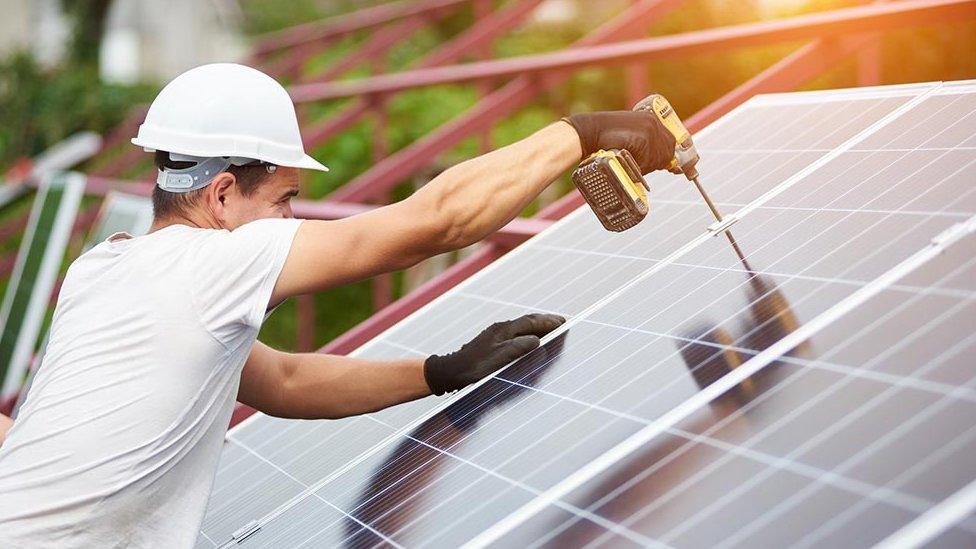Homeowners to help pay £33bn to decarbonise heating
- Published
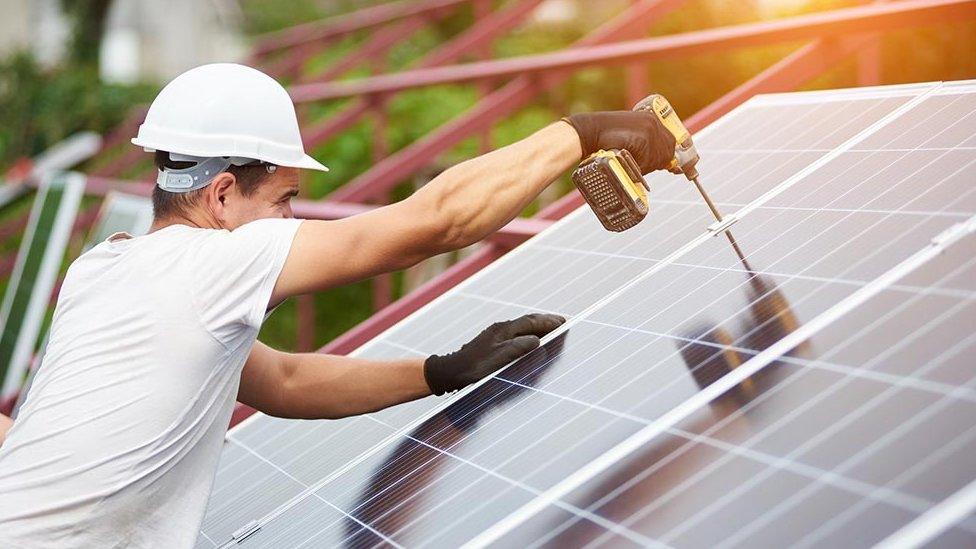
Up to a fifth of all greenhouse gases in Scotland come from homes and buildings
About £33bn is needed to decarbonise heating in Scotland, with homeowners expected to pick up some of the bill.
A Scottish government strategy lays out the total cost of the initiative which seeks to convert the country's building stock to zero emissions by 2045.
Up to a fifth of all greenhouse gases in Scotland come from homes and buildings.
The strategy says one million homes and more than 50,000 non-domestic buildings will need to transition by 2030.
This will reduce emissions by an estimated two-thirds.
However, government funding will not be enough to cover the costs, with investment needing to peak at between £2bn and £2.5bn by the end of this decade.
At least £1.8bn of government funding will be made available to decarbonise buildings in this parliamentary term, according to the Programme for Government announced last year.
The Heat in Buildings strategy, external says a taskforce is being created to investigate how the additional money can be found.
"Clearly, this cost cannot be borne by the public sector alone," it said.
"We are establishing a new green heat finance taskforce to identify innovative solutions to maximise private sector investment, and find new ways to help individuals and organisations spread the upfront cost of investing in making their properties warmer, greener and more efficient."
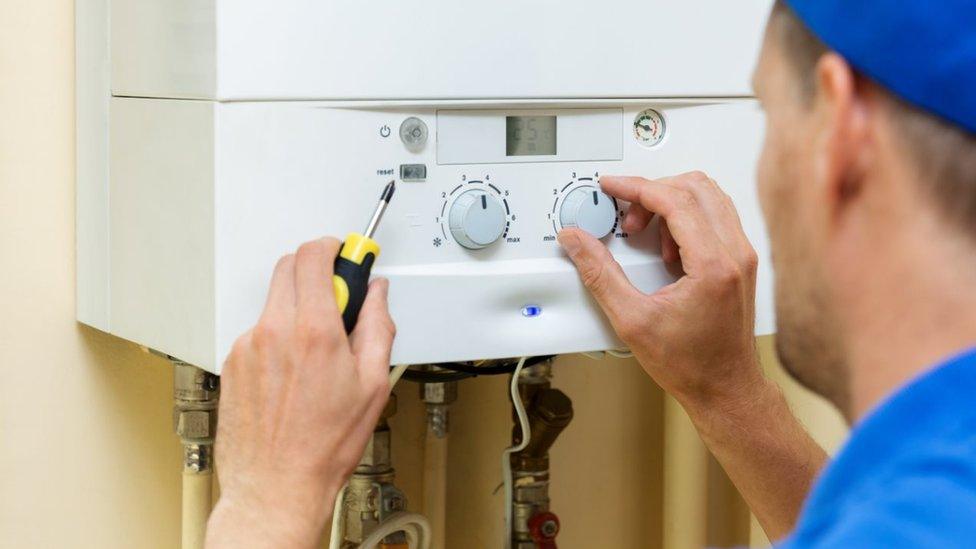
Gas boilers would need to be replaced to decarbonise the heat network
It said public sector funding from the Scottish government, UK government, local authorities or investment from new institutions, such as the Scottish National Investment Bank, would be part of the solution to deliver the scale of transformation needed by 2045.
But it added that private investment - whether from homeowners, landlords or businesses paying for their own properties or from financial institutions providing financing for large-scale infrastructure - "must also drive progress".
"We must mobilise and work in collaboration with the private sector to leverage the scale of investment needed and to develop innovative and new approaches to financing heat decarbonisation and energy efficiency measures," the strategy said.
Patrick Harvie, the minister responsible for zero carbon buildings, announced the strategy in his first statement to parliament since the co-operation agreement between the Greens and SNP.
He said: "This is a huge transition, affecting communities, businesses and households all across Scotland and we must work collaboratively - across public and private sectors, across parliament, and across governments - to deliver it."
'Essential step'
However, the Scottish Green party co-leader was unable to say how much homeowners would be likely to pay for the necessary changes, or how they would be supported by the government.
In response to a question from Labour MSP Mark Griffin, Mr Harvie said: "Can I tell every homeowner what the precise share of investment is going to be between now and 2045 for every private home?
"No, of course I can't do that. What we are doing is committing to ensure that we're looking at a wide range of sources for that investment. It can't all come from public funds.
"Even I might blanche at the idea if (Mr Griffin) comes forward with a proposal for a £33bn tax rise so we can fund it all from public sources."
The strategy claims that at least 16,400 jobs will be created through the need for different heating sources by 2030.
Liam Kerr, Scottish Conservative spokesman for net zero, energy and transport, said: "The SNP-Green coalition are failing to say where they'll get the money required and are preparing to saddle homeowners and businesses with a bill for over £30bn.
"It is ironic that the anti-business Green minister is now going to have to rely on the private sector to bail him out if his strategy is to succeed."
Holly O'Donnell, climate and energy policy manager at WWF Scotland, said: "This new strategy to cut emissions from our homes and buildings is an essential step to dealing with the climate emergency.
"Soaring gas prices are an urgent reminder that the sooner we can banish polluting and volatile fossil fuels from our homes the better."
She added that the new regulations would need to be accompanied by grant support to make the transition to green homes fair to everyone.
- Published6 February 2021
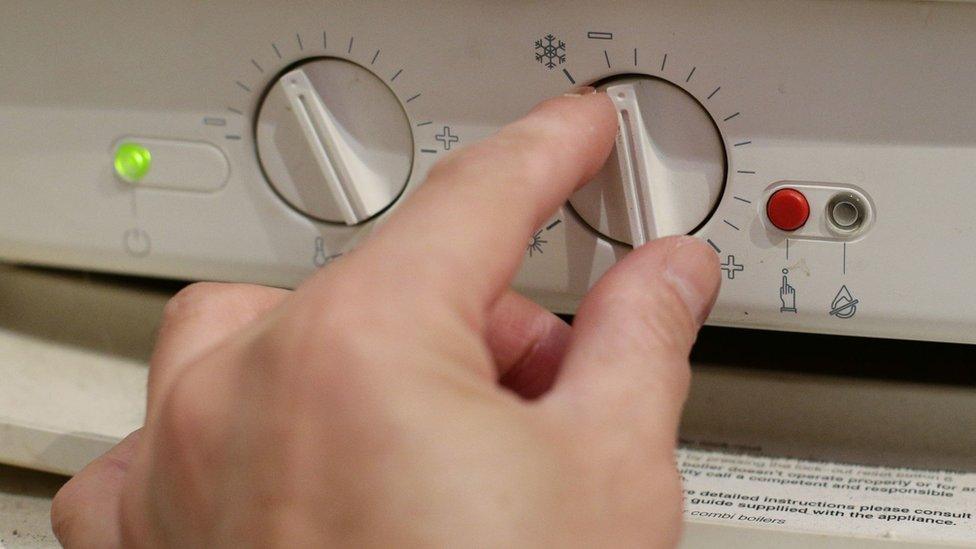
- Published10 July 2020
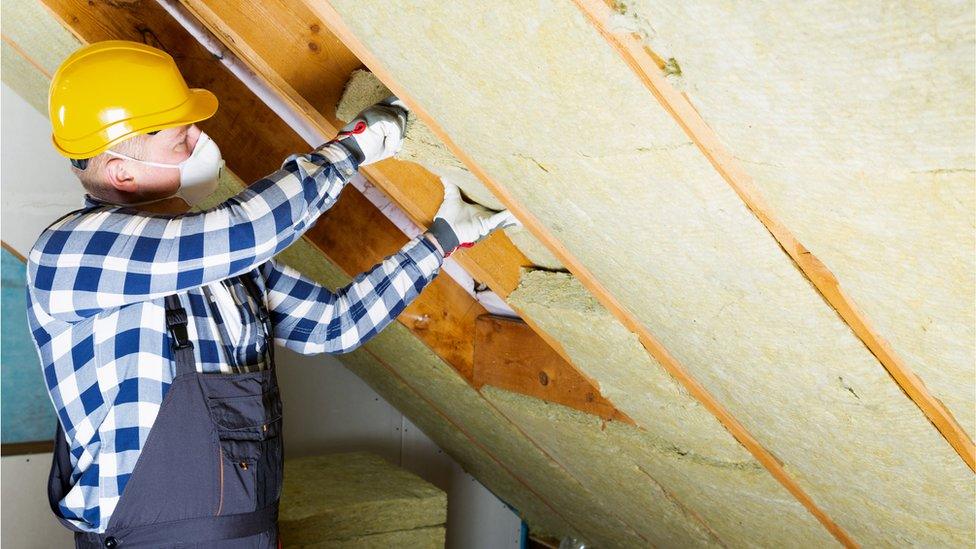
- Published24 February 2020

- Published23 September 2019
